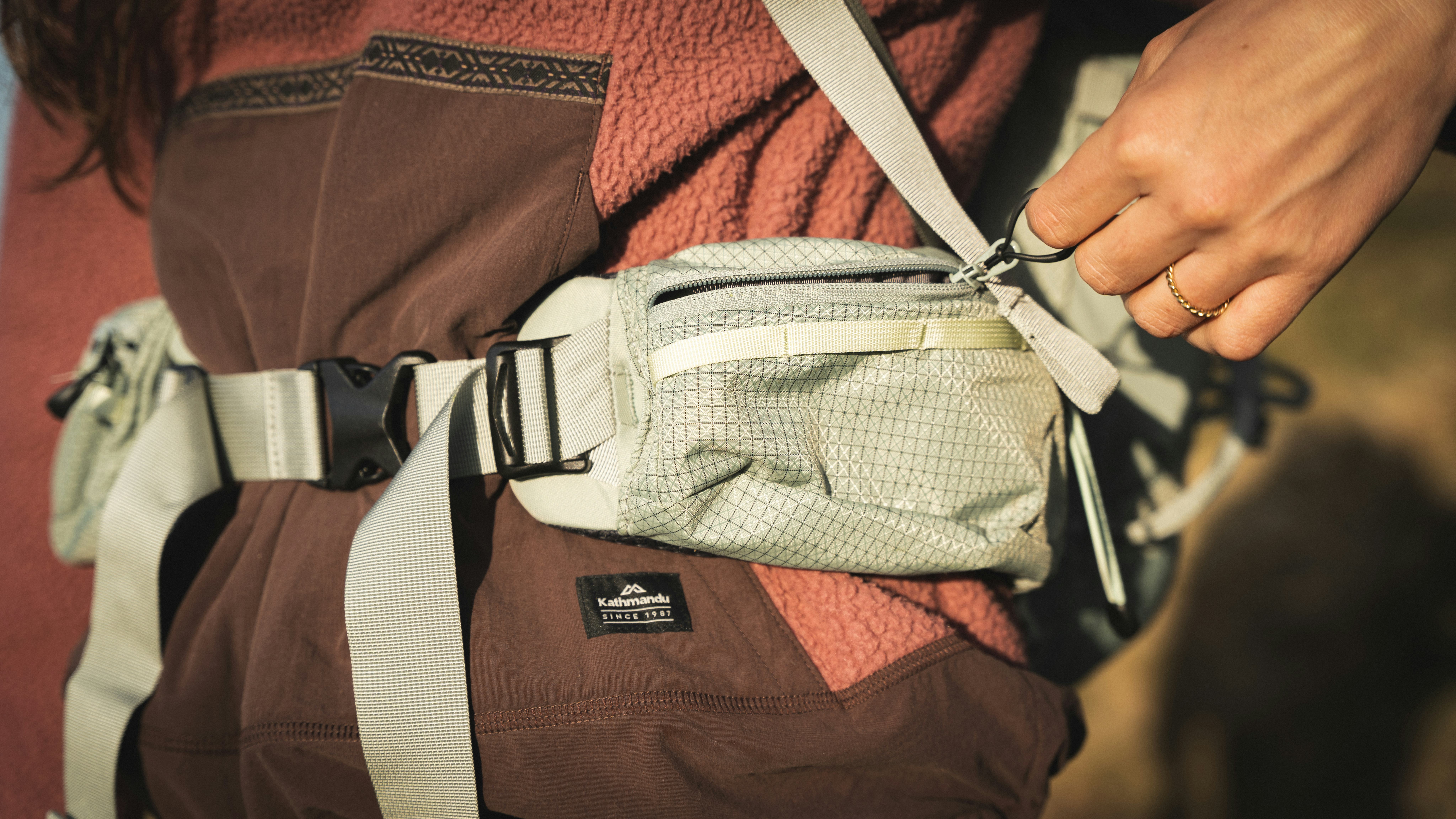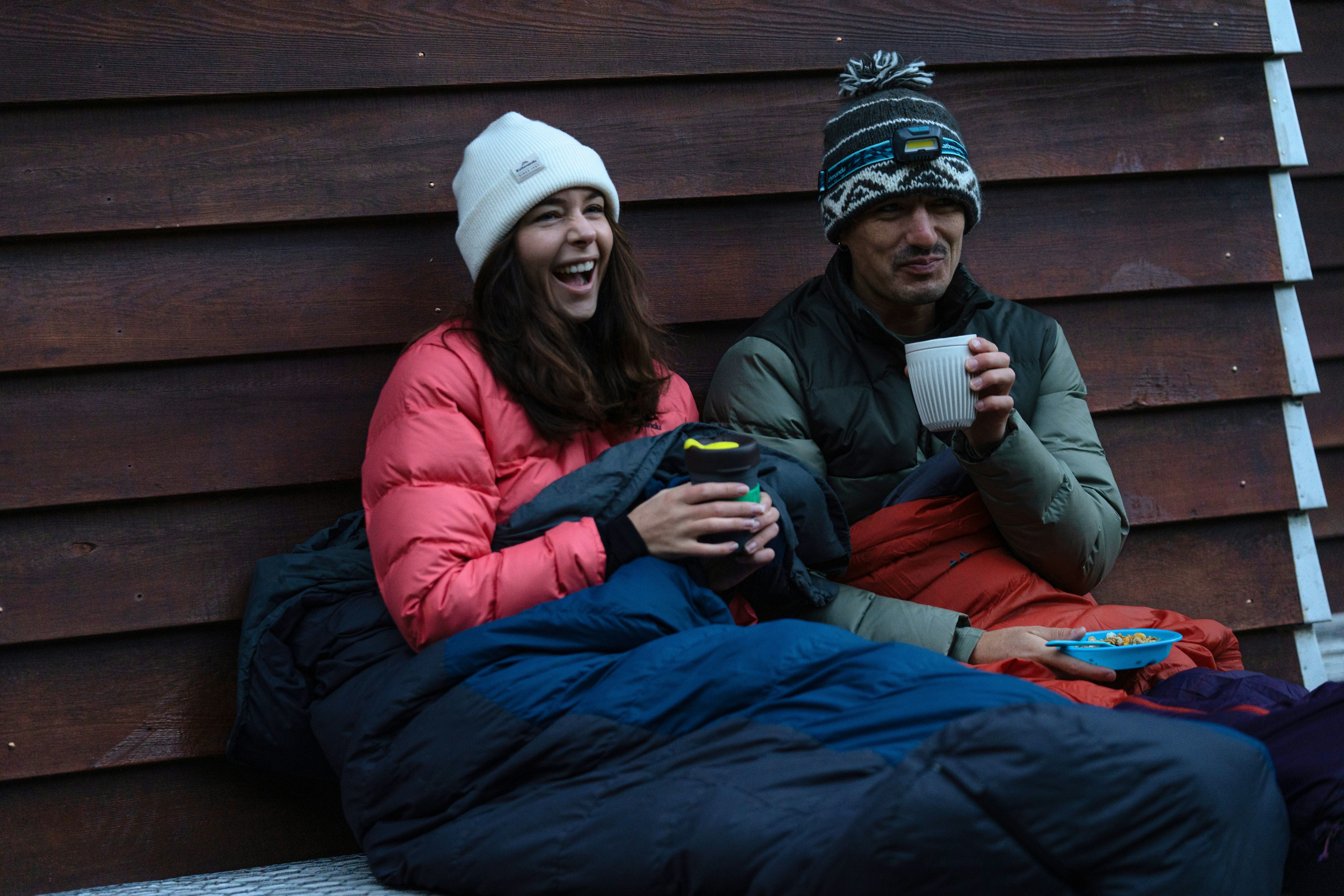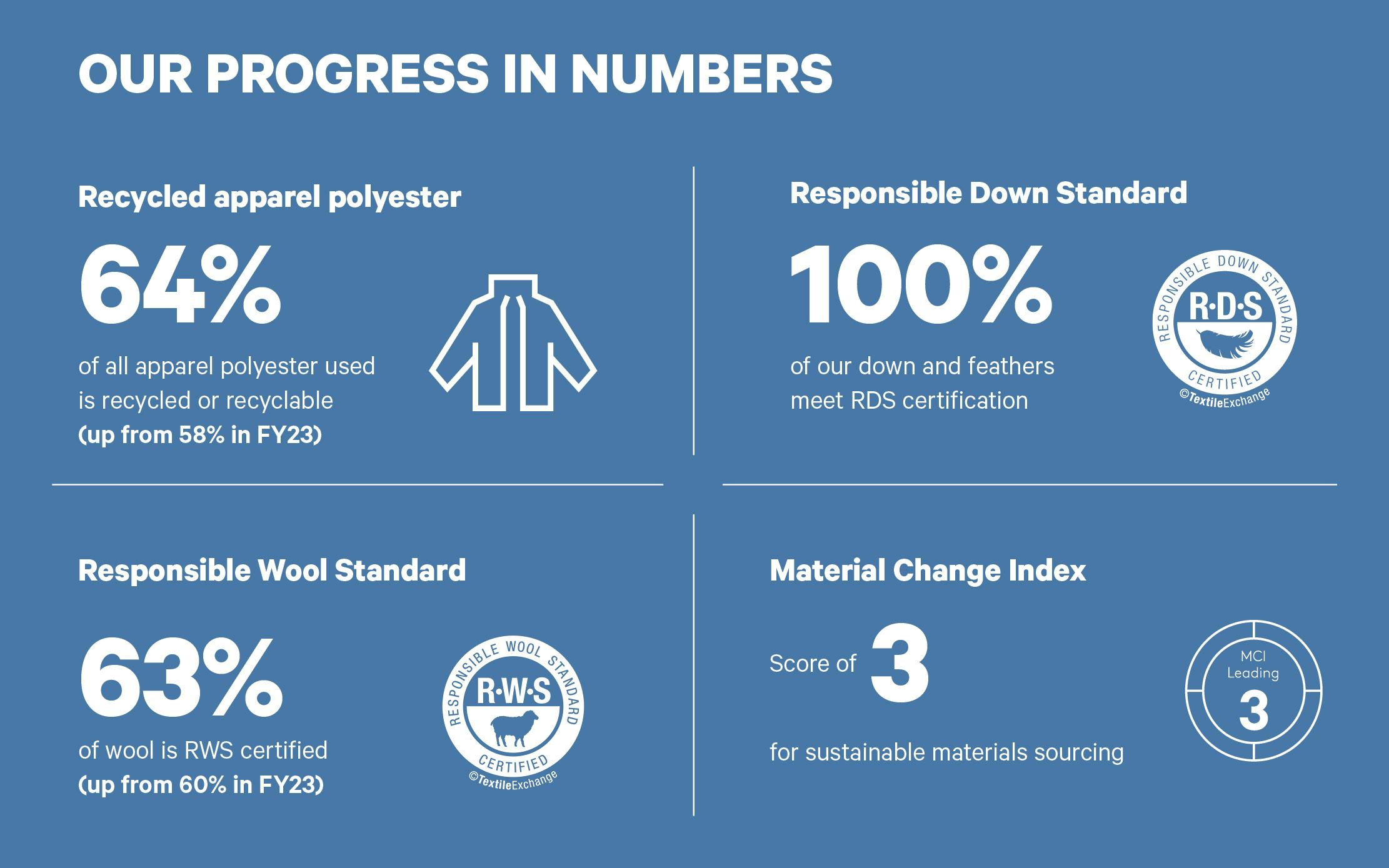Return to News
Kathmandu’s commitment to responsible materials
September 17, 2024
4 min read

At KMD Brands, we are dedicated to our own-brand products being responsibly sourced. To us, ‘responsibly sourced’ means that our products are made, to a significant degree, with environmentally preferred, low climate impact materials. This year Kathmandu made significant strides towards this goal.

To reach KMD Brands’ responsible materials goal, Kathmandu is focused on three targets: 100% recycled or recyclable polyester by 2030; 100% of wool certified to the Responsible Wool Standard by 2025; and prioritising biochemistry over petrochemistry in innovation and performance development.
Recycled polyester, reimagined
Kathmandu is determined to ensure every piece of polyester we use will be recycled or recyclable by 2030. This year, our apparel range reached 64% use of recycled polyester, an increase from 58% in FY23. In addition, we expanded the use of recycled polyester throughout our equipment range, resulting in 58% of all polyester used being recycled. In total, 62% of all the polyester Kathmandu uses in both apparel and equipment is recycled, which means we are on track for our 2030 target.
Our commitment goes beyond just numbers. We’ve been steadily introducing advanced recycling processes into our supply chain. While integrating these processes takes time, we are seeing promising results.
Take Kathmandu's Epiq SE, a special edition of our beloved puffer jacket. Epiq SE is crafted from Q-CYCLE® by Fulgar, a high-quality yarn made from recycled tyres and other plastic waste.
“The Epiq SE is made with the same technical specifications and durability Kathmandu is known for, and we are now positioned to expand to a broader range of products,” says Manu Rastogi, Head of Product Innovation and Product Sustainability at Kathmandu.
More is on the horizon, as we continue to collaborate with suppliers to ensure new polyester fabrics we bring on board are either recycled or bio-based. Next season, we’ll be featuring apparel linings made entirely from recycled materials – a milestone of which we’re particularly proud.

Responsible Wool Standard
We aim to ensure that all our wool meets the Responsible Wool Standard (RWS) by 2025. This means the wool comes from farms that prioritise animal welfare and sustainable land management.
As at the end of FY24, 63% of our wool is RWS certified, up from 60% the previous year. Behind these figures is a story of collaboration and commitment. We’ve been working hand-in-hand with our suppliers, guiding them through the process to become RWS certified. We recognise our role is bigger than Kathmandu; it's about creating a ripple effect that encourages more responsible sourcing practices across the industry.
“We’re well on our way to reaching our goal of 100% Responsible Wool Standard certification. By working closely with our suppliers and sharing our commitment to responsible sourcing, we’ve helped two suppliers achieve RWS certification this year. It’s about leading by example and driving meaningful change across the industry,” says Ella Vuleta-Dick, Materials Technologist, Product, Kathmandu.
Innovating with biochemistry
We have also set a Kathmandu goal to prioritise biochemistry over petrochemistry. As Manu says: “To meet our sustainability and circularity goals, we need to decouple our entire product portfolio and our business from fossil fuels.”
Moving away from petrochemicals means embracing natural alternatives, like the peppermint oil to control odour-causing bacteria in our SUN-Scout and WELL.DER.NESS collections.
We are also experimenting with algae-based ink. Our first venture with Living Ink’s carbon-negative Algae Black™ pigments began with our range of organic cotton t-shirts. As Manu explains: “Algae can sequester carbon dioxide 400 times more efficiently than trees, and holds incredible potential.” Living Ink transforms leftover algae and other farm biomass into sustainable pigments, offering a safe, renewable alternative to petroleum-based, Carbon black.
These biochemistry innovations are part of our broader commitment to reducing our environmental impact while enhancing product performance.
Material Change Index
In FY24 Kathmandu received an indicative rating of 'Scaling' (3) on the Textile Exchange’s Material Change Index (MCI), the world’s largest peer-to-peer comparison initiative within the textile industry. Official scorecards for the prior year are confirmed each October. The latest rating reflects the introduction of tougher MCI criteria, highlighting the evolving standards of the textile industry (previously Kathmandu has received a 'Leading' or '4' rating).
Additionally, Kathmandu is one of just five global brands selected for an international working group tasked with developing and piloting the new Materials Matter Standard. This standard promotes clothing and textiles that advance climate goals, uphold human rights and animal welfare, and benefit the environment.

What’s next?
Looking ahead, we’re committed to testing, trialling and exploring new innovations, and collaborating closely with our partners and suppliers. We’re on a journey together, and we know it’s not just about meeting targets; it's about leading change.
“Rather than thinking about doing ‘less bad’ we are thinking about what ‘good’ looks like for us. It’s a mindset shift that starts, not with the problems, but with the possibilities,” Manu concludes.


